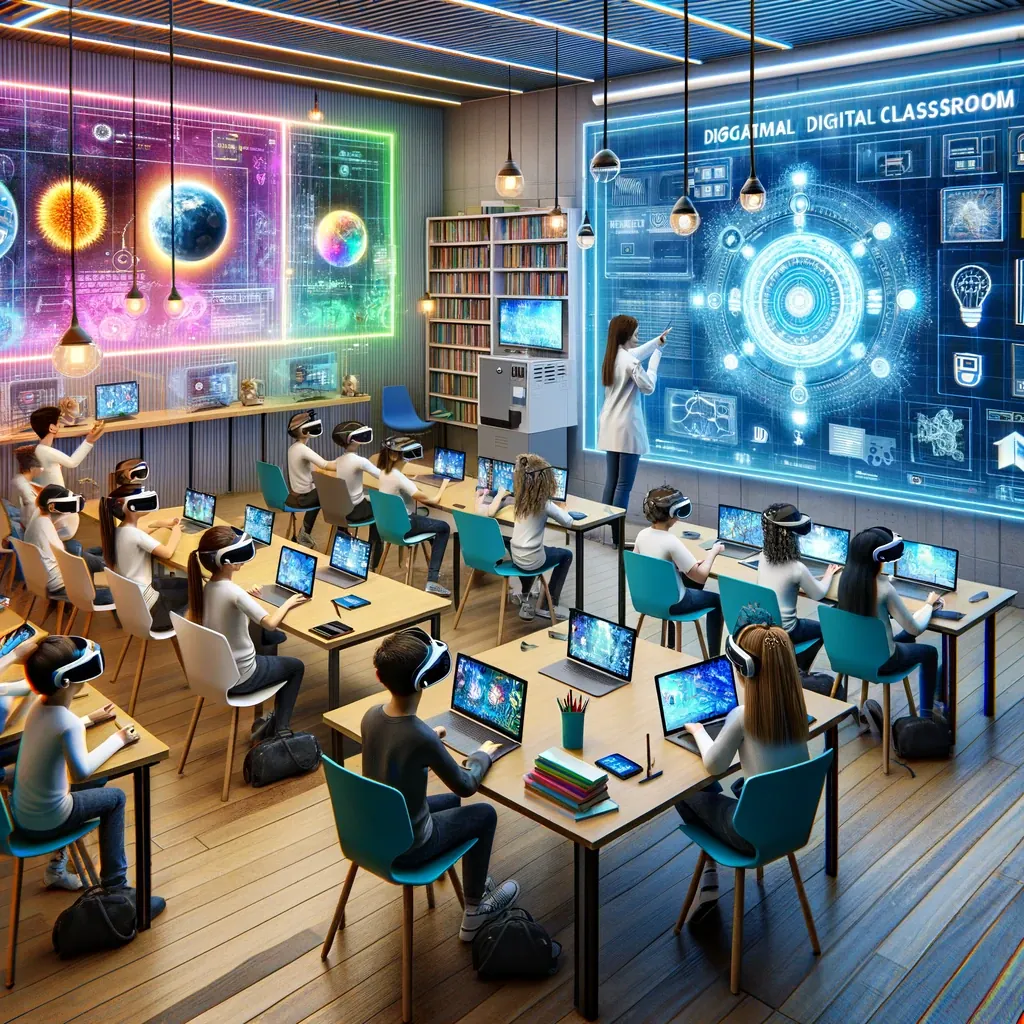In an age where digital technology is advancing at an unprecedented pace, the landscape of education is undergoing a transformation that is both revolutionary and inevitable. The future of education in the digital era is not a distant reality but a present-day movement towards more inclusive, accessible, and personalized learning experiences. This evolution is reshaping how educators teach, students learn, and how educational institutions operate.
Integrating Digital Tools in Learning
The integration of digital tools in the classroom has opened up new avenues for teaching and learning. Interactive whiteboards, educational software, and virtual reality (VR) are making lessons more engaging and interactive. These tools not only enhance the learning experience but also cater to different learning styles, making education more inclusive.
E-Learning platforms and online courses offer flexibility and accessibility, allowing students to learn at their own pace and on their own schedule. This shift towards digital learning is democratizing education, making it accessible to students in remote areas and those who cannot attend traditional schools due to various reasons.
The Rise of Personalized Learning
One of the most significant advantages of digital education is the ability to personalize learning. Adaptive learning technologies use algorithms to analyze a student’s performance and tailor the educational content accordingly. This personalized approach ensures that students are neither bored with material that is too easy nor overwhelmed by content that is too difficult.
Personalized learning also allows educators to identify and address the unique challenges and needs of each student, providing targeted interventions that improve learning outcomes. This level of personalization was unimaginable in traditional classrooms, where one-size-fits-all teaching methods were the norm.
Collaborative Learning Environments
Digital education fosters collaboration among students, regardless of their geographical location. Through online forums, social media, and collaborative software, students can work on projects together, share ideas, and support each other’s learning. This collaborative environment not only enhances learning but also prepares students for the modern workplace, where teamwork and digital communication are essential skills.
Enhancing Teacher’s Roles
The role of teachers is evolving in the digital era. With access to a wealth of online resources, teachers can now spend less time on administrative tasks and more time on what they do best: teaching and mentoring. Digital tools provide teachers with insights into each student’s progress, allowing them to offer more personalized guidance and support.
Moreover, professional development for teachers has become more accessible with online courses and webinars, enabling them to stay updated with the latest educational technologies and pedagogical strategies.
Challenges and Opportunities
While the digital transformation of education offers numerous benefits, it also presents challenges. The digital divide remains a significant barrier, with students in underserved communities having limited access to technology and the internet. Ensuring equitable access to digital education is crucial for realizing its full potential.
Privacy and security are also major concerns, as the use of digital tools involves the collection and analysis of student data. Educators and policymakers must address these issues to protect students’ privacy and foster a safe online learning environment.
Preparing Students for the Future
The digital era is not just changing how we teach and learn; it is also shaping the skills and competencies that students need to succeed in the 21st century. Critical thinking, digital literacy, and adaptability are becoming increasingly important. Education in the digital era is preparing students not just for the jobs of today but for the challenges and opportunities of the future.
The Role of Artificial Intelligence in Education
Artificial Intelligence (AI) is set to play a pivotal role in the future of education. From personalized learning paths to automated grading and feedback, AI can significantly enhance the efficiency and effectiveness of education. AI-powered tools can provide students with real-time assistance and feedback, similar to a personal tutor, but on a scale that would be impossible for human educators to achieve.
The Importance of Lifelong Learning
In the digital era, learning does not stop after graduation. The rapid pace of technological change means that skills need to be updated continuously. Digital education platforms facilitate lifelong learning, offering courses and training for individuals at all stages of their careers. This culture of continuous learning is essential for personal and professional growth in a world where change is the only constant.
The future of education in the digital era is bright, offering unprecedented opportunities for enhanced learning, inclusivity, and personal growth. As we navigate this transformation, it is crucial to address the challenges that arise to ensure that the benefits of digital education are accessible to all. By embracing the potential of digital technologies, we can revolutionize the classroom and prepare students for a future that is digital, interconnected, and ever-changing.

